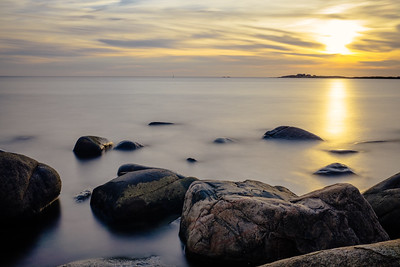From the Sea to Sustainability: Conquering Obstacles in Swedish Low-Trophic Mariculture Expansion

KTH researcher and KTH FOOD member Jean-Baptiste Thomas, together with KTH colleagues Linus Hasselström, Rajib Sinha, and Fredrik Gröndahl, and associates Åsa Strand at IVL, Frida Franzén at Tyréns, and Anthesis, have published a paper in AMBIO. The study, funded by FORMAS, assesses governance hurdles for the expansion of low trophic mariculture (LTM) in Sweden.
LTM involves the cultivation of species from lower levels of the aquatic food chain, such as seaweeds and mollusks. These species typically require less input in terms of resources such as feed and energy whilst contributing to ecosystem services, making them a more sustainable option compared to species that come from higher trophic levels. “Basically, low-trophic species have wide-ranging ecosystem services that are being provided alongside this low carbon per kilo edible protein,” explained Thomas in an interview about the article.
In Sweden, Thomas commented, there is potential for growth in the development of these blue foods. “Low-trophic mariculture certainly is [possible], and the problem that we're seeing in Sweden is that, even though low-trophic mariculture has been taking place for mussels, for instance, on the West Coast since the 70’s, the amount that's being produced is limited. There's a much higher potential to produce this low carbon, healthy, nutritious protein. There's tremendous potential for more production. We're not seeing that potential being fulfilled,” Thomas explained.
The article Thomas and his associates published investigates part of the reason why this expansion isn’t happening, namely governance. By interviewing key stakeholders such as Swedish producers, industry partners, and people involved in LTM regardless of whether they worked in production, processing, or retail, the researchers were able to define some of the hinders that are preventing the expansion of LTM on the Swedish west coast. “In terms of this article, governance was identified by industry partners as being one of the major hurdles, so that became our focus. If we want to have more sustainable food production in Sweden, then we need to look at how we are governing these food systems,” Thomas commented.
